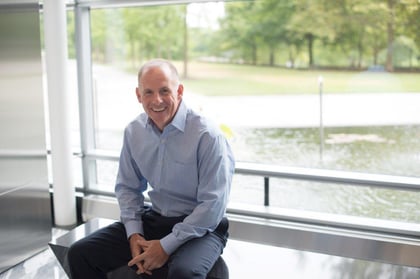
Frank Zecca means it when he says he’s out to “stop the cycle of professional athletes going broke.” That starts, and continues, with advisors who serve as the players’ “personal CFOs,” Zecca, managing director of OFS Wealth, specialists in advising pro athletes, told ThinkAdvisor. The RIA’s roster of high-profile sports clients boasts stars such as basketball greats Steph Curry and Chris Paul and Olympic swimming phenom Michael Phelps.
“Our job is to simplify the player’s life off the field or court so they can maximize their earnings on the field or court,” says Zecca, a CFP who joined Octagon, sports agency subsidiary of Interpublic Group, 27 years ago and spearheaded the creation of an RIA within it.
Managing more than $500 million in assets for about 250 clients and families, the in-house OFS Wealth serves both Octagon agency clients and other players.
The biggest obstacle to putting an end to pro players going bust is their own reckless spending and denial of reality: Those big earnings from their short careers must be parlayed smartly to provide an income stream when they retire and onward for the next 50 or 60 years.
So, first, Zecca, 53, gives young players, typically fresh out of college or even high school, a thorough schooling in Finance 101 and helps with everything from opening a checking account to designing financial plans. All that builds a foundation of trust, essential when they’re ready to invest in the market.
ThinkAdvisor recently spoke to Zecca by phone from his office in McLean, Virginia. Off-hours, the New York City police officer’s son keeps buff by playing hockey and lacrosse. “Ninety-five-percent of my clients are young or younger than I am,” he says. “The two players we most recently signed are less than half my age. I have to stay super-fit — I need to last!”
Here are highlights from our conversation:
THINKADVISOR: What’s the biggest challenge in advising young professional athletes?
FRANK ZECCA: We’ve got to stop the cycle of athletes going broke. That can be fixed. For years, my goal has been to professionalize wealth management for athletes.
Please explain why your RIA calls itself the “personal chief financial officers for professional athletes.”
We’re the business side. So our offices have very little sports memorabilia — like jerseys — around. We’re a professional financial advisory shop for athletes that’s trying to change the landscape because these guys have had so many bad experiences with money.
But there’s fun in your offices too: I read you have a ping-pong table. Who plays?
It’s cool when professional tennis players play against the employees on occasion.
Also, someone in the firm reportedly has a sports bobble-head collection. Is that you?
No. I don’t have a bobble-head collection. I have spreadsheets and investment [documents]! At cocktail parties, my job sounds super-cool — but at the end of the day, it comes down to sitting at my computer and dealing with plans and details, and taking care of stuff.
Does the same idea hold true for your colleagues too?
Yes. It’s cool for the guys the first time they do tax returns for Michael Phelps, say. But when you’re doing it for five years, you’d better make sure you like doing tax returns.
What’s the biggest challenge for young pro athletes when it comes to financial planning?
First, it’s financial literacy. Our job is to be educators. Most of our clients are right out of college or high school. Second, it’s having the players understand how much of their contracts are guaranteed — that is, what they’ll earn after taxes. We’re dealing with a very short window of income generation. The average length of time in pro sports for any player is about 3.8 years.
How do you explain how significant that is to players?
Stressing that they’re earning a decent sum of money over a short period of time but that this money has to last a lifetime. That’s really the biggest challenge.









 August 28, 2019 at 10:22 AM
August 28, 2019 at 10:22 AM











